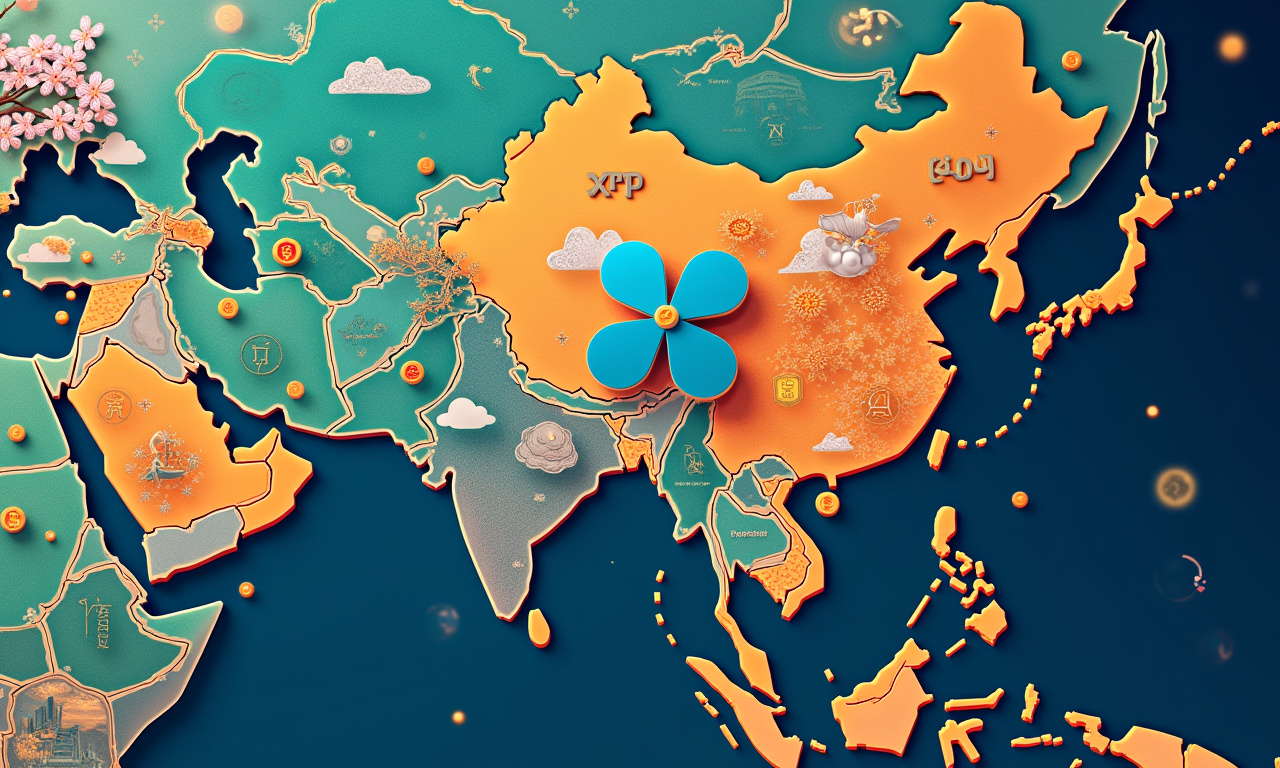
Paris Blockchain Week's Untold Founder Stories: Asia's Rise in Web3

Josefa dela Cruz
Paris Blockchain Week (PBW) 2025 —the largest crypto event in Europe—has just passed. It left us with substantial takeaways, fresh relationships — and the clear feeling that the story is far from over. That’s a tough act to follow, next we heard from Hoskinson, Long, Back and Chappaz – titans, no doubt. Where were the stories that inspired us? The ones that inspired, that showcased the global promise of Web3, removing the conference glitter to expose the opportunity underneath, over the flashy keynotes and cookie cutter panel walks?
I have to say that the Asian contingent at PBW made significant contributions to Web3. Their impact was a lot more like an afterthought. That, my friends, is a dangerous lapse.
Asia's Web3 Builders: Overlooked, Underestimated?
Let's be blunt. The West tends to look at Asia as a place whose markets we should conquer, rather than a place we should look to for innovation. What we’re looking for is user base and where it can go in terms of adoption. What we’re missing is the amazing talent and ingenuity that is coming up from inside. I couldn’t help but overhear the snippets of conversation – “so much untapped potential,” “such a huge market” – but very, very rarely “What can we learn from them?”
Here’s why that “Forgotten Voices” angle is so important. As I talked with numerous Asian founders while at PBW, their stories were a stark contrast to the oft-heard Silicon Valley tale. They sure as hell weren’t just building companies—they were building ecosystems. They weren’t just pursuing high valuations, they were solving real-world issues back home in their cities.
Consider the case of a founder from Vietnam (who asked to remain anonymous). He brought me up to speed on his new project, a decentralized identity solution to help unbanked farmers in rural communities. He wasn’t talking about disrupting finance, he was talking about providing access to it. His struggles weren't about raising a Series A; they were about navigating complex local regulations and building trust within a deeply skeptical community. That's a story worth telling.
It got me thinking. We celebrate the "democratization of finance" with Web3, yet we often forget that true democratization means empowering everyone, especially those who have been historically excluded. Asia isn't just a market; it's a continent brimming with individuals who are actively shaping the future of Web3, often with far fewer resources and far more obstacles than their Western counterparts.
Funding Gap: A Symptom Of Larger Issue
The “Start in Block” competition, notwithstanding its €10 million of funding, was an impressive PBW centerpiece. I don’t actually know the numbers but anecdotally, it seemed really low and disproportionate.
This is not just a dollars and cents issue (though, let’s be real, funding is key). It’s tangible support like access to networks, mentorship, the deep industry experience and network visibility – which can make or break a young company. It’s lingering, it’s about learning to overcome the biases that are just going to naturally make any Asian founder not taken seriously by Western investors.
One female founder from India, an extremely smart whiz working on a decentralized healthcare platform, related to me her own frustrations. They’re investors in the idea,” she said, but they always ask, ‘Can you scale this to the West,’ ” She shook her head at the notion, “They don’t get that the biggest impact is here, in my community.
This highlights a critical point: We need to shift our focus from simply replicating Western models in Asia to supporting solutions that are tailored to the unique needs and challenges of the region. To do this successfully, you must go below the surface of local cultures and regulatory landscapes. Gain insight into the challenges Asian entrepreneurs are still striving to surmount.
MICA & US: A Fork In The Road?
The conversations on regulatory divergence between the US and the EU, especially the adoration of MICA, seemed… half baked. MICA might be a notable step forward for regulating crypto in Europe. Does it actually serve the needs of Web3 builders across Asia? How are these regulatory frameworks impacting cross-border collaboration and innovation?
- MICA (EU): Clearer regulatory framework, potentially fostering innovation within Europe.
- US: More fragmented regulatory landscape, creating uncertainty and potential barriers for startups.
I’d really like to see a panel with those folks next year. It should hone in and center the impacts of MICA on Asian Web3 startups and companies.
The rise of Asia in Web3 isn't just about technological innovation. It's about social impact, financial inclusion, and empowering communities. It’s really about creating a more equitable, inclusive future for all, not just a more decentralized one.
We cannot pay lip service — we need to put a concerted effort behind these voices and seeking out these Asian founding voices. We need to check ourselves against our own biases and assumptions. We have to accept that the future of Web3 is not just in Silicon Valley, DC, or even Paris. It’s actively being shaped in colorful megacities and obscure hamlets from east to west and north to south all over Asia. If we’re really serious about knowing the future of this technology, it’s high time we started to do so. We’re at a remarkable juncture to learn both from the innovation and from the adaptability.


